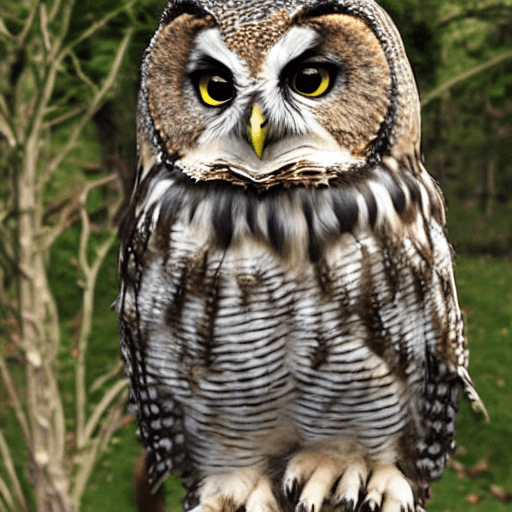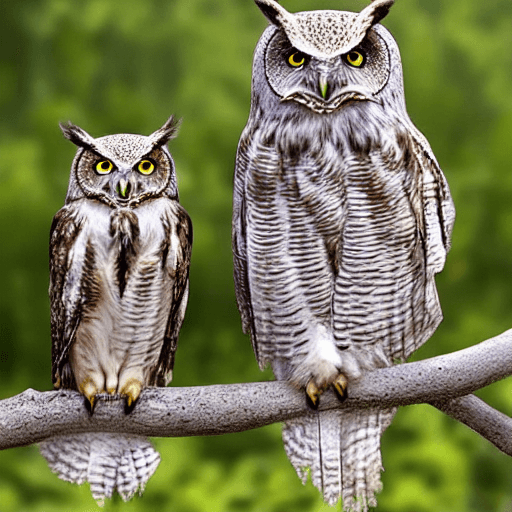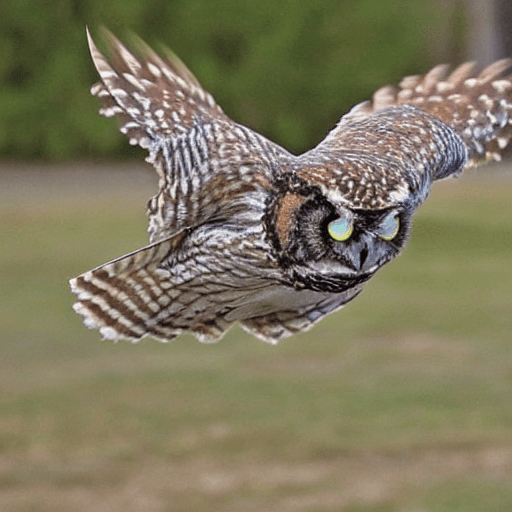Are owls smart?
There is a lot of debate surrounding the intelligence of owls.
Owls are considered to be one of the smartest bird species.
Some people believe that owls are one of the most intelligent animals on the planet, while others think they are just average.
Here are 7 key points about how intelligent owls are:

- Owls are considered one of the most intelligent bird species. Their large brains relative to their body size is one sign of their intelligence.
- Owls display complex hunting and food-gathering behaviors, such as baiting prey and caching food for later. Their hunting strategies show planning and problem-solving abilities.
- Experiments have shown that owls can learn new tasks and adapt their behaviors. For example, captive owls can learn to pull strings to access food.
- Owls have demonstrated the ability to associate calls with meaning, recognize individual humans, and build simple “maps” of their environment in their minds.
- However, owls tend to have fewer neurons than similarly sized mammals. Their brains are optimized for vision and hearing rather than complex cognition.
- Owls show little evidence of abilities like symbolic thought, reasoning, self-awareness, and math that are associated with higher intelligence in some mammals.
- Their intelligence is tuned towards skills like navigation, auditory processing, visuospatial memory, and predatory behavior.
So in summary, owls display complex behaviors and adaptation abilities that signify intelligence compared to many species.
However, their intelligence tends to be specialized for hunting and survival rather than more generalized cognition. Their level of intelligence is not at the same level as the most intelligent mammals.
In fact, some owl species have been observed hunting cooperatively and even using tools!
Their impressive intelligence is likely due to their adaptation to a nocturnal lifestyle, which requires keen senses and problem-solving skills.
Are owls smart?
Owls are fascinating creatures, and their intelligence has long been a subject of debate.
Some experts believe that owls are exceptionally intelligent and capable of solving complex problems and retaining vast amounts of information.
Others argue that owls are actually quite limited in their cognitive abilities and that their reputation for wisdom is largely due to folklore and legend. The truth is likely somewhere in between, as each owl species exhibits its own unique set of behaviors and abilities.
However, there is no denying that owls are skilled hunters, and their ability to locate prey in complete darkness is nothing short of amazing.
In addition, owls have exceptional eyesight, hearing, and sense of smell, which allows them to detect prey that would escape the notice of other predators.
So while we may not know exactly how smart owls are, there is no doubt that they are remarkable creatures.
Are owls as smart as people say they are?
Owls are often associated with wisdom and intelligence, but are they really as smart as people say they are?
Let’s take a closer look.
First of all, owls have excellent eyesight. They can rotate their heads up to 270 degrees, and their large eyes provide them with excellent night vision.

In addition, owls have very good hearing.
Their ears are positioned asymmetrically on their head, which gives them the ability to locate the source of a sound quickly and accurately.
This is an important skill for hunting in the dark.
But what about cognitive ability?
Well, studies have shown that owls are capable of learning and memory tasks similar to those of other birds.
- For example, they can remember the location of food caches and the calls of other owls.
- So while they may not be as intelligent as humans, there is no doubt that owls are smart birds.
What makes owls so intelligent compared to other bird species?
Owls are among the most intelligent of all bird species.
Their large brains relative to their body size give them the ability to think abstractly and solve complex problems.
- They also have excellent eyesight and hearing, which allows them to hunt effectively in low-light conditions.
- In addition, owls have a very flexible neck, which allows them to turn their head up to 270 degrees. This gives them an exceptionally wide range of vision, which is ideal for spotting prey.
- Furthermore, owls have special feathers that allow them to fly silently. This gives them a significant advantage when hunting, as they can approach their prey without being detected.
All of these factors contribute to the owl’s reputation as a master of stealth and cunning.
How do owls use their intelligence to survive in the wild?

Owls are some of the most intelligent birds in the wild.
They have adapted to survive in a wide range of environments and use their intelligence to help them find food, avoid predators, and build nests.
- One of the ways owls use their intelligence is by using their excellent eyesight and hearing to help them find prey.
- Owls can see eight times better than humans in low light and can turn their heads up to 270 degrees, giving them an incredibly wide field of view.
They also have sharp hearing that allows them to locate prey even when it is hidden. In addition to using their senses to find food, owls also use their intelligence to evade predators.
By day, they roost in trees or on cliffs where they are difficult to spot.
At night, they use their silent flight and camouflage plumage to sneak up on prey without being detected.
As a result of their adaptability and intelligence, owls are able to thrive in the wild.
Are there any drawbacks to an owl’s level of intelligence?

While owls are widely admired for their intelligence, there are a few potential drawbacks to being as smart as these birds.
For one, owls are often less able to adapt to new environments than less intelligent animals.
This is because they rely heavily on their habits and routines to survive.
As a result, an owl that is relocated to a new area may have difficulty finding food or nest sites, and may even starve to death.
Additionally, owls are more likely to become prey for predators that can outwit them. To avoid becoming dinner, an owl must constantly be on the lookout for danger, which can be exhausting.
Finally, owls often form strong bonds with their mates and offspring, which can make them vulnerable to heartbreak and grief.
While being an owl certainly has its perks, it’s important to remember that there can be some downside to being at the top of the avian intelligence scale.
Why are owls considered wise?
For centuries, owls have been revered as symbols of wisdom and knowledge.

- In many cultures, they are seen as positive omens and are believed to bring good luck.
- There are many reasons why owls are considered wise. One is their solemn and serious demeanor; they seem to exude a sense of calm and authority.
- Additionally, owls are known for their sharp eyesight and hunting prowess. They are stealthy predators that can take down their prey with lethal efficiency.
- Furthermore, owls are nocturnal creatures that are often associated with the moon – another symbol of wisdom.
For all of these reasons, owls have come to be seen as symbols of knowledge and insight, making them some of the most respected animals in the world.
So the next time you see an owl, remember that you are looking at a very intelligent creature.
Article Sources
Jacks of Science sources the most authoritative, trustworthy, and highly recognized institutions for our article research. Learn more about our Editorial Teams process and diligence in verifying the accuracy of every article we publish.